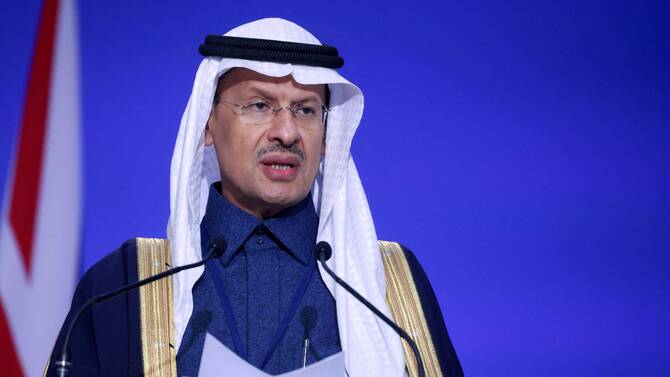SAN FRANCISCO: Big Internet companies and small software developers alike are likely to face scrutiny over how they share customer information in the wake of the scandal involving Facebook and the British election consulting firm Cambridge Analytica.
Lawmakers in the US and the EU have called for probes into how Facebook allowed Cambridge Analytica to access data on 50 million users and use it to help the election campaign of President Donald Trump. Facebook shares have fallen 8.5 percent this week as investors fear the incident will lead to new regulation.
The scrutiny and the risk of regulatory action could affect Alphabet Inc’s Google, Twitter Inc, Uber Technologies Inc, Microsoft Corp’s LinkedIn and the many others that make their user data available to outside developers.
The interconnections between platforms such as Facebook and Google and third-party services sit at the core of the contemporary Internet, enabling people to share articles to Facebook from news websites and log into shopping apps using their Google account.
But the Facebook case has turned the application programming interfaces, or APIs, that enable such data sharing, into a new front in the escalating battle between lawmakers and tech companies over the monitoring and securing of their vast platforms. Threat of sanctions has already prodded companies into better policing of inappropriate commentary on their services.
“All companies are going to need to do a lot more than just laissez faire policy to manage third-party data access,” said Jason Costa, who helped run APIs at Pinterest Inc, Twitter and Google and now works at GGV Capital. “The days of (the) ‘we’re just a platform and can’t be held responsible for how users use it’ line that many companies use, is no longer going to be tenable.”
APIs have raised privacy concerns since they emerged around 2005, but their adoption and impact has grown rapidly as companies move data online and look for ways to make it more useful.
Uber, for example, in 2016 enabled apps that provided tax and lending services to import driver paystubs. The company failed to respond to a request for comment on its monitoring and auditing practices.
The economic dynamic behind APIs is simple: Software developers create new tools that benefit big tech companies’ users, and in return they gain instant access to a large number of consumers.
The big platforms say they have built in protection, such as human reviews and automated scanning tools to detect abuse by partners.
But software experts say policies are toothless because auditing is lax; Facebook CEO Mark Zuckerberg, under intense public pressure, said on Wednesday the company would now perform audits of the information it shared with partners before it tightened rules in 2014.
Dartmouth University engineering professor Geoffrey Parker, who has assigned students to develop apps based on APIs, said automated policing methods will detect spam-like apps and brazen efforts to steal data. It is much more difficult to enforce bans on storing or mashing together information, or acting against users’ interest, he said.
Some companies added safeguards in the past several years. Facebook stopped allowing developers access to information on its users’ friends. But compliance audits were minimal, a former employee said on the condition of anonymity.
Twitter and LinkedIn limited free public access. For paid deals, LinkedIn said “partners are rigorously vetted and regularly declined.” The company added that it regularly monitors API usage and takes “swift action when we see or hear of any abuse of our terms.”
Software developers acknowledged they often do not even read the terms of use for APIs. Rule-breakers can fly under the radar and amass significant information, said Andres Blank, chief executive of recruiting software maker Scout.
“It is hard to police if the alarms aren’t being sounded,” said Blank, who has worked with APIs from LinkedIn and Google. Alex Moore, chief executive of Baydin Inc, which develops Boomerang, an app that can send emails on time-delay, said Microsoft scrutinized his services when the companies partnered on a new feature. But he was not aware of any auditing after it launched. Google recently asked whether Boomerang could access less information, but that was a rare “poke,” Moore said.
“There is going to be things people took for granted about data sharing that come to light,” he warned. Google declined to comment. Microsoft did not respond to a request to comment.
Clamping down could limit the supply of innovative tools built on data sharing. But some providers, including Royal Bank of Canada, which announced an API this week, have gone a step further to allow access only to vetted partners.
Paul Nerger, senior vice president at Developerprogram.com, which helps companies such as Cisco Systems Inc. manage APIs, said clients have limited the number of partners so that software can be tested “to make sure they are not illegally harvesting” data.
Startups are taking heed, too. Affectiva, which last year released an API for identifying consumers’ emotional states from speech samples, said that it would audit partners as its program grows. However, Gabi Zijderveld, the company’s chief marketing officer and head of product strategy, said: “We inevitably need regulation and legislation on ethical and transparent use of data.”
Data privacy alarm bells sound in wake of Facebook/Cambridge Analytica scandal
Data privacy alarm bells sound in wake of Facebook/Cambridge Analytica scandal

The Family Office to host global investment summit in Saudi Arabia

RIYADH: The Family Office, one of the Gulf’s leading wealth management firms, will host its exclusive investment summit, “Investing Is a Sea,” from Jan. 29 to 31 on Shura Island along Saudi Arabia’s Red Sea coast.
The event comes as part of the Kingdom’s broader Vision 2030 initiative, reflecting efforts to position Saudi Arabia as a global hub for investment dialogue and strategic economic development.
The summit is designed to offer participants an immersive environment for exploring global investment trends and assessing emerging opportunities and challenges in a rapidly changing financial landscape.
Discussions will cover key themes including shifts in the global economy, the role of private markets in portfolio management, long-term investment strategies, and the transformative impact of artificial intelligence and advanced technologies on investment decision-making and risk management, according to a press release issued on Sunday.
Abdulmohsin Al-Omran, founder and CEO of The Family Office, will deliver the opening remarks, with keynote addresses from Saudi Energy Minister Prince Abdulaziz bin Salman and Prince Turki Al-Faisal, chairman of the King Faisal Center for Research and Islamic Studies.
The press release said the event reflects the firm’s commitment to institutional discipline, selective investment strategies, and long-term planning that anticipates economic cycles.
The summit will bring together prominent international and regional figures, including former UK Treasury Commercial Secretary Lord Jim O’Neill, Mohamed El-Erian, chairman of Gramercy Fund Management, Abdulrahman Al-Rashed, chairman of the editorial board at Al Arabiya, Lebanese Minister of Economy and Trade Dr. Amer Bisat, economist Nouriel Roubini of NYU Stern School of Business, Naim Yazbeck, president of Microsoft Middle East and Africa, John Pagano, CEO of Red Sea Global, Dr. Anne-Marie Imafidon, MBE, co-founder of Stemettes, SRMG CEO Jomana R. Alrashed and other leaders in finance, technology, and investment.
With offices in Bahrain, Dubai, Riyadh, and Kuwait, and through its Zurich-based sister company Petiole Asset Management AG with a presence in New York and Hong Kong, The Family Office has established a reputation for combining institutional rigor with innovative, long-term investment strategies.
The “Investing Is a Sea” summit underscores Saudi Arabia’s growing role as a global center for financial dialogue and strategic investment, reinforcing the Kingdom’s Vision 2030 objective of fostering economic diversification and sustainable development.











